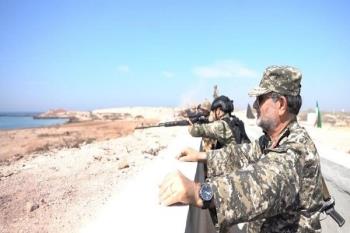Alwaght- Only a few days after the US and the Taliban announced striking a peace deal after nearly two years of negotiations, Afghanistan’s political scene is witnessing a crisis amid a power struggle. On Monday, Ashraf Ghani, who was announced as the official winner of the election, took the oath as president of Afghanistan. On the other side, Abdullah Abdullah, his rival and government CEO, took the same oath and picked an aide.
Searching for the roots of the new crisis in Afghanistan and its implications on the future of the country, Alwaght has arranged an interview with Pirmohammad Molazehi, an Iranian expert of the Afghanistan affairs. Molazehhi believes that Afghanistan is moving towards further instability and multi-governance but Abdullah Abdullah cannot continue in this way.
He said: “When the presidential election was held and the votes were counted, two rivals claimed to have won the race. Abdullah Abdullah's election team alleged that there was a huge fraud and about 300,000 ballots should be nullified. Despite Abdullah’s insistence, the election commission and Ghani declined to bow to the pressures, unleashing a new impasse in the Afghanistan politics.”
He continued that while the crisis was at its climactic point, the Americans proceeded with the peace talks with the Taliban. In the middle of the situation, Ashraf Ghani seized the chance and called on the Independent Election Commission to publish the final results. The results ensued, naming Ghani the president of the country. Abdullah rejected the results and his team resisted. A few days after, Ghani took the presidential oath at the presidential palace. Abdullah took the same oath in Sepidar Palace, the location of his former office as the Chief Executive Officer.
Multi-governance, civil war, Iran mediation
Commenting on the consequences of the new crisis, Mr Molazehi said that Afghanistan is drifting towards multiple governances in which Ghani claims presidency, Abdullah claims presidency, and the Taliban have their own administration, though not officially, as they have under their control vast portion of Afghanistan. With their conflicts in mind, the three administrations are unlikely to unite under a single administration to manage the home affairs.
Meanwhile, because the US and the EU recognize Ghani, he has a better position compared to Abdullah. At best, Abdullah will have to ask for a share in the power from Ghani. “Albeit a genuine share, not like that he was given after the 2014 election dispute.”
Mr Molazehi added that an administration led by Abdullah cannot continue living. In fact team Abdullah has two choices for living on: First, it can bring to the streets the people protesting the results and announce a nationwide strike to force Ghani out of the office and give the power to Abdullah. Second, it can announce a government in northern Afghanistan where he has vast support. But this is impossible without allied military power and security forces.
Both of these choices potentially can stir a new civil war in Afghanistan. Mr Molazehi believes that Iran can play a big role in bringing to an end the altercation. “But neighboring Iran can take the role of a mediator. Iran has to bring the two sides close to each other and not support one in the face of the other.”
ISIS could be given the chance of growing faster
The Iranian expert also commented on the ISIS terrorist group’s role in the country. He said that ISIS will never intend to cooperate or participate in the power and enter a deal with the Afghanistan central government. The terrorist group, Mr Molazehi held, after its defeats in Syria and Iraq is planning to establish the so-called “eastern caliphate.” ISIS plans to fundamentally challenge the Afghanistan government.
“It does not matter for the ISIS who is the president in Afghanistan, no matter it is Ghani or Abdullah. What matters is its success to destroy the government structure in Afghanistan. The so-called eastern caliphate covers a wide range of Muslim-inhabited regions, from Russia, and China, and India to Pakistan, Afghanistan, and even Iran.



























